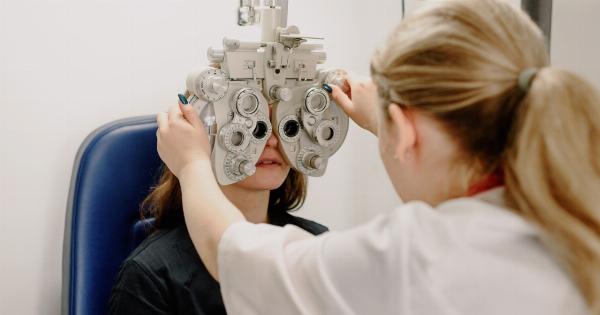Allergic conjunctivitis is a common condition in children. It is an inflammation of the conjunctiva, the thin membrane that covers the eye and the inner surface of the eyelids.
Allergic conjunctivitis is typically triggered by an allergic reaction to pollen, dust, animal dander, or other environmental allergens. The symptoms include red, itchy, and swollen eyes, as well as excessive tearing and sensitivity to light.
Here are some tips and tricks for managing allergic conjunctivitis in children:.
Avoid the allergen
The most important step in managing allergic conjunctivitis in children is to identify and avoid the allergen that triggers the allergic reaction. This can be pollen, mold, dust, or pet dander.
Keep your child indoors when the pollen count is high, and use an air purifier to filter out allergens.
Use eye drops
Over-the-counter eye drops can help relieve the symptoms of allergic conjunctivitis in children. Look for eye drops that contain antihistamines, which can help reduce inflammation and itching.
Make sure to follow the directions on the label, and do not use eye drops for longer than recommended.
Cool compresses
Cool compresses can help relieve the symptoms of allergic conjunctivitis in children. A cool, damp washcloth can be placed over the eyes for a few minutes several times a day. This can help reduce redness and swelling, as well as soothe the itchiness.
Wash hands frequently
Allergic conjunctivitis can be contagious, so it is important to wash hands frequently to prevent the spread of germs. Teach your child to wash their hands often, especially before touching their eyes or face.
Clean bedding and stuffed animals
Allergens can accumulate in bedding and stuffed animals, so it is important to wash them frequently in hot water to kill dust mites and other allergens. You can also place stuffed animals in a plastic bag and freeze them overnight to kill dust mites.
Limit rubbing of eyes
Children with allergic conjunctivitis may rub their eyes frequently, which can make the symptoms worse. Encourage your child to avoid rubbing their eyes and to use a tissue instead.
If your child wears glasses, make sure that they fit properly and are not rubbing against the skin around the eyes.
Avoid smoke
Cigarette smoke and other types of smoke can irritate the eyes and make the symptoms of allergic conjunctivitis worse. Avoid smoking around your child, and make sure that they are not exposed to secondhand smoke.
Consult with a doctor
If your child’s symptoms do not improve with home remedies, or if they experience severe or persistent symptoms, it is important to consult with a doctor.
They may recommend prescription eye drops or other treatments to help relieve the symptoms of allergic conjunctivitis in children.
Conclusion
Allergic conjunctivitis can be a frustrating and uncomfortable condition for children, but it can be managed with the right strategies.
By identifying and avoiding allergens, using eye drops, and practicing good hygiene, you can help relieve the symptoms and improve your child’s quality of life.





























